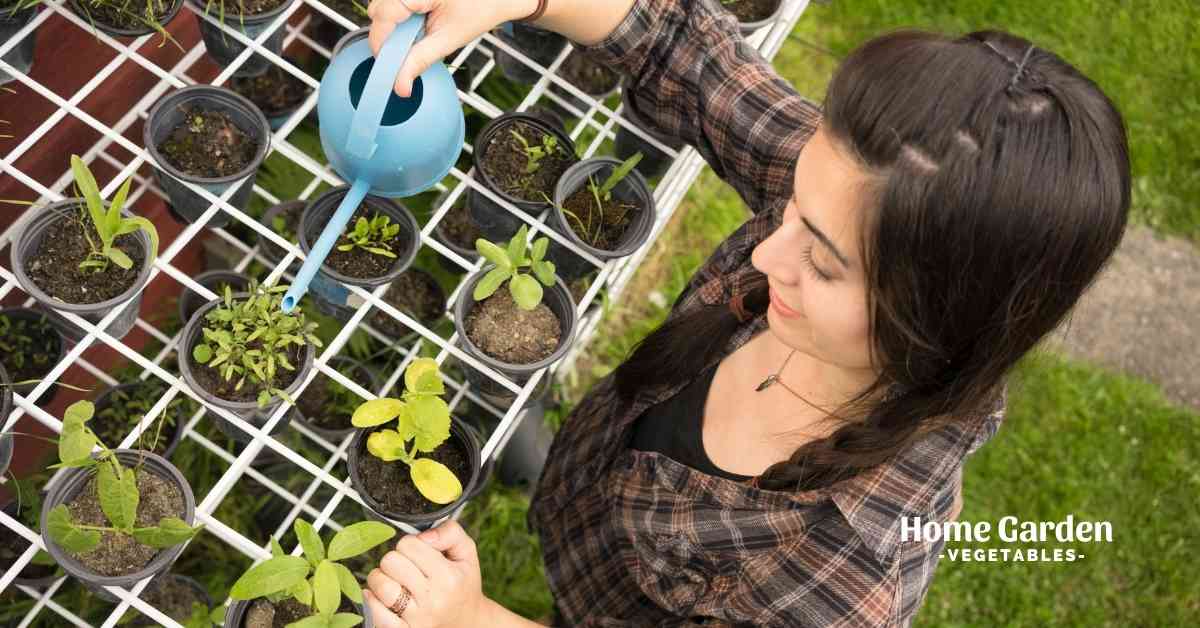There is no federal law against growing your own food, but there are some state and local laws that you should be aware of. Read more to learn everything you need about growing your own food.
If you’re interested in growing your own food, you may wonder if it’s legal. The answer depends on where you live, but generally, it is legal to grow your own food. However, there are some restrictions, so it’s important to research before you start growing.
Reader Poll: What online courses would interest you?
Growing your own food is not illegal, but there are some regulations that you need to be aware of. If you want to grow food for commercial purposes, you will need to obtain a license from the government.
If you are growing food for personal consumption, there are no specific regulations that you need to follow. However, it is always a good idea to check with your local city or county government to see if there are any restrictions.
Do You Need Permissions To Grow Your Own Food?
There’s no need to ask permission to grow vegetables unless you’re planning on doing something out of the ordinary. For example, if you want to grow vegetables in your front yard, you may need to check with your local homeowner’s association first. But as long as you’re not doing anything that will cause problems for your neighbors, you should be able to grow whatever vegetables you like without getting permission first.
Subscribe to our newsletter!
Check Garden Laws
It is always best to check with your local laws before starting any food-growing operation, no matter how small. This is especially true if you plan on growing any edible plant, as there may be regulations regarding what can be grown in your area. Failure to follow the law could result in fines or other penalties, so it is always better to be safe than sorry.
In most cases, as long as you are not growing anything illegal and are not causing any nuisances for your neighbors, you should be fine to grow your own food. However, checking with your local laws is always a good idea. That way, you can avoid any potential problems down the road.
Recommendations Around Greenhouses
There are a few fundamental rules to remember when it comes to greenhouses. First, always make sure that the structure is securely anchored. This is especially important in areas with high winds. Second, ventilate the greenhouse properly to prevent heat build-up and condensation. Third, never use chemicals inside the greenhouse, as this can contaminate the plants. Finally, always keep the greenhouse clean and free of debris to prevent pests and diseases from taking hold.
Water Restricted Areas
Yes, it is legal to grow foods around areas where there are water restrictions in place. However, there may be some restrictions on the type of crops that can be grown and the amount of water used for irrigation. Farmers need to obtain a water rights permit from the local water authority to irrigate their crops. For example here in the UK during hot weather, there are usually hosepipe bans. Plan in advance how you intend to water your crops.
How Much Food Can You Grow In Your Yard
In fact, the amount of food you can grow is limited only by the available space. There are no specific regulations regarding how much food you can grow, so you can grow as much as you like!
Of course, if you want to sell the food you grow, you will need to follow the government’s rules and regulations for food production. But for personal use, you can grow as much food as you need without legal restrictions.
Limitations On Growing Your Own Food
While there are many benefits to growing your own food, there are also some legal limitations that you should be aware of. For example, in some jurisdictions, growing certain types of food, such as marijuana, in your own home is not lawful.
Additionally, there may be zoning laws that restrict or prohibit gardening in your neighborhood. And finally, if you are growing food for commercial purposes, there are a whole host of additional regulations you must comply with. So, before growing your own food, check with your local authorities to see the rules in your area.
Growing Conflicts
There is an increasing trend of homeowners associations and municipalities banning front yard gardens from maintaining a certain level of aesthetic uniformity in neighborhoods. This is often done to keep property values high, but it can have the unintended consequence of creating conflict between neighbors.
On the one hand, some people see front yard gardens as an eyesore that brings down the look of the whole neighborhood. They argue that if everyone is allowed to have a front yard garden, everyone’s property will decrease.
On the other hand, people who enjoy gardening see it as a hobby that should be encouraged, not discouraged. They argue that front yard gardens can add to the beauty of a neighborhood and that banning them is a form of discrimination against gardeners.
The conflict between these two groups is likely to grow as more municipalities adopt front yard bans. It is essential to find a way to balance the rights of both sides so that everyone can enjoy their neighborhood without conflict.
Conclusion
It is not illegal to grow your own food in the United States. You can grow food for your own consumption on your own property. You can also sell the food you succeed in if you follow the laws and regulations regarding food production and sale.
There are many benefits to growing your own food, including fresher and healthier food, more control over your food, and the satisfaction of knowing you grew it yourself.

